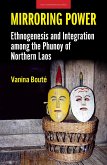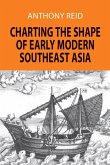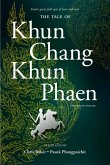The Shan are the largest of the many national ethnic groups residing in the Union of Myanmar. After migrating from their early home in the Hwangho-Yangtze region of China, they settled in the eastern part of today's Myanmar, primarily in the Shan Plateau, around the first century AD. The Shan dominated the political stage for a few centuries, founding three historically important dynasties in the heartland of Myanmar at Pinya, Sagaing, and Inwa. Shan history then merges with that of Myanmar until after World War II and Myanmar's independence from the British, when the Shan initiated efforts to establish an autonomous state. Sai Aung Tun deftly traces the cultural and political history of the Shan people from their origins, to Myanmar independence, and up to the constitutional crisis of 1962. His work highlights particularly the political affairs of the Shan state from 1946 to 1962. He details the Second Pang Long Conference of 1947, which brought about the historic agreement of all the nationalities of Myanmar to work together for independence. He examines the significant role played by the Shan people in the debate on whether Myanmar should adopt a federal system of administration, and their efforts to draft a new constitution. He concludes with an account of the military coup of 1962, which effectively sabotaged the constitutional reform process, a stalemate that still persists today. Unique among Shan histories is the in-depth analysis of the Kuomintang incursion into the Shan States in the early 1950s, with its political, military, and economic consequences. Sai Aung Tun has amassed a substantial amount of primary materials in the text proper, including verbatim excerpts from conference interviews and speeches, as well as a rich collection of official documents, minutes, and reports in the appendixes. The historical critique of existing constitutional weaknesses will be of interest to those who advocate the drafting of a new constitution in Myanmar. The pleas for unity and goodwill among the ethnic groups, made by various leaders nearly half a century ago, will resonate with readers today. This comprehensive reference work will be an invaluable resource for all Shan scholars and Myanmar observers, and an excellent addition to any reference collection on Southeast Asia.
Hinweis: Dieser Artikel kann nur an eine deutsche Lieferadresse ausgeliefert werden.
Hinweis: Dieser Artikel kann nur an eine deutsche Lieferadresse ausgeliefert werden.








